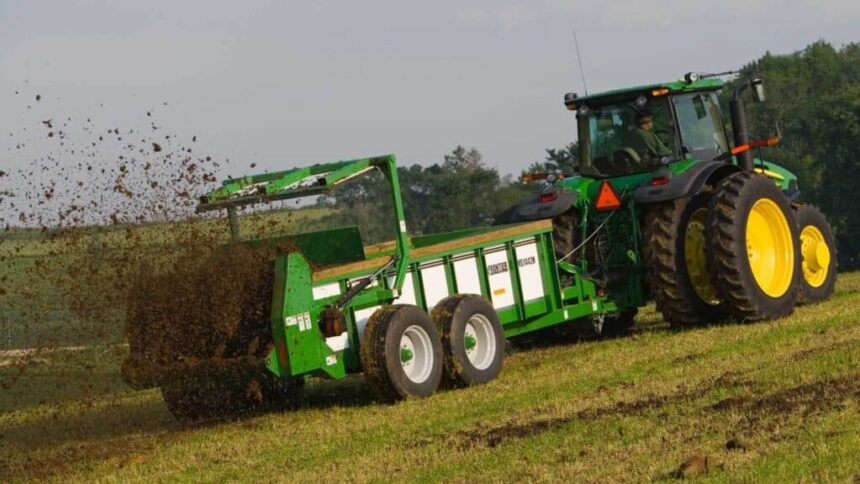Sustainable farming focuses on practices that enhance soil health, reduce environmental impact, and improve overall farm efficiency. One essential tool in this approach is the manure spreader, which plays a crucial role in nutrient recycling and soil fertility management. By efficiently distributing organic waste, manure spreaders help farmers reduce reliance on synthetic fertilizers while promoting a more balanced and eco-friendly agricultural system.
Benefits of Using Manure Spreaders
Manure spreaders offer several advantages in sustainable farming, making them a valuable investment for both small and large-scale farms.
1. Enhancing Soil Fertility
Livestock manure is rich in essential nutrients like nitrogen, phosphorus, and potassium, which improve soil health. A manure spreader ensures these nutrients are evenly distributed across fields, enhancing crop growth and reducing soil degradation.
2. Reducing Waste and Promoting Recycling
Instead of disposing of animal waste, manure spreaders help repurpose it as a natural fertilizer. This recycling process reduces farm waste while making use of available resources in an eco-friendly manner.
3. Lowering Dependency on Chemical Fertilizers
Synthetic fertilizers can be expensive and contribute to soil degradation over time. By using manure as an organic alternative, farmers can cut costs while maintaining or even improving soil productivity.
4. Preventing Soil Erosion
Manure improves soil structure by increasing organic matter content. This enhances soil moisture retention and reduces erosion, particularly in areas prone to wind and water runoff.
5. Improving Carbon Sequestration
Organic matter from manure helps sequester carbon in the soil, reducing greenhouse gas emissions and contributing to climate change mitigation efforts.
Types of Manure Spreaders
There are different types of manure spreaders designed for specific farming needs:
- Broadcast Spreaders – These spread manure in a wide, even layer, making them ideal for large fields.
- Box Spreaders – Equipped with beater bars, they distribute manure in controlled amounts, offering better precision.
- Liquid Manure Spreaders – Used for spreading slurry or liquid manure, these ensure even application while minimizing runoff risks.
- Vertical Beater Spreaders – Designed for heavy and compacted manure, they break up clumps and spread nutrients efficiently.
Best Practices for Using Manure Spreaders
To maximize the benefits of manure spreading, farmers should follow these best practices:
- Test Soil Nutrients – Regular soil testing helps determine the right amount of manure needed, preventing over-application.
- Apply Manure at the Right Time – Spreading manure in early spring or fall allows nutrients to integrate into the soil before planting season.
- Avoid Spreading on Wet or Frozen Ground – This reduces runoff and ensures nutrients remain in the soil.
- Use Proper Calibration – Adjust spreader settings based on manure composition to ensure even distribution.
- Incorporate Manure into the Soil – Tilling or lightly incorporating manure after spreading reduces odor and nutrient loss.
Manure spreaders are essential tools in sustainable farming, helping farmers manage waste effectively while improving soil health. By using manure as a natural fertilizer, farms can enhance productivity, reduce costs, and contribute to environmental conservation. When used correctly, manure spreaders support long-term agricultural sustainability, making them a key component of eco-friendly farming practices.
Join 'Farmers Mag' WhatsApp Channel
Get the latest Farming news and tips delivered straight to your WhatsApp
CLICK HERE TO JOIN






